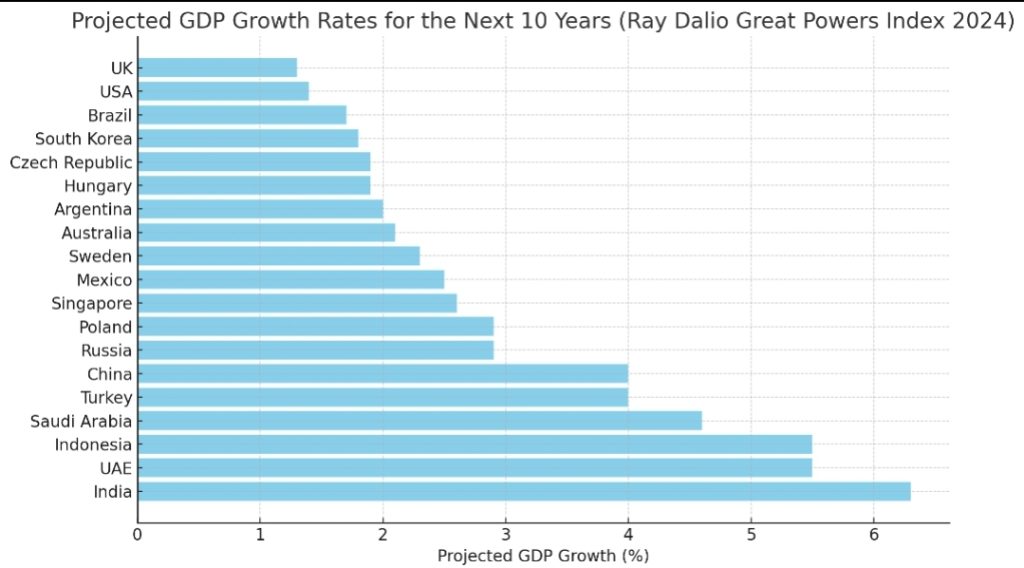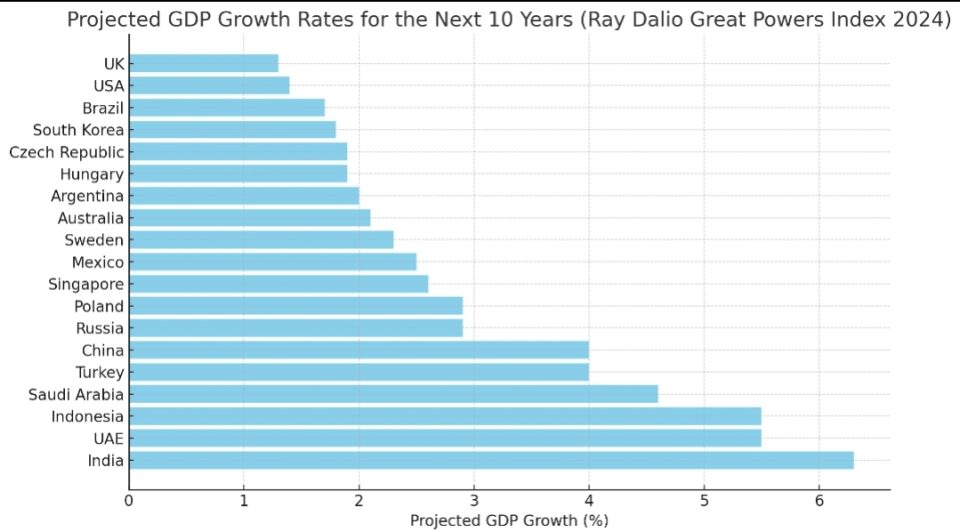The Future of Customer Experience in Global Economy that is Transforming
As the world economy shifts, customer experience (CX) plays a pivotal role in shaping the success of businesses. With emerging markets expanding and developed economies slowing, companies must adapt their strategies to stay competitive. Understanding how economic growth impacts consumer behavior is essential for creating personalized, innovative, and efficient CX strategies.
Understanding the Shift in Global Economic Power
In the coming decade, emerging economies will drive growth. India, the UAE, and Indonesia are expected to lead this change. These nations are investing heavily in technology, infrastructure, and consumer-facing services. As a result, businesses must focus on delivering experiences that resonate with these evolving markets.
For instance, India’s projected 6.3% growth is largely driven by its young population and expanding middle class. Therefore, companies targeting India will need to innovate, offering products that cater to a diverse, tech-savvy, and aspirational consumer base. It’s no longer enough to have a generic offering; businesses must cater to specific regional and demographic needs.
The Importance of Personalization
Personalization will be at the core of any successful CX strategy. As global consumers become more interconnected, they expect brands to understand their preferences and needs. With data analytics and AI, businesses can offer tailored experiences, improving satisfaction and building loyalty.
Emerging markets, especially those in Asia and the Middle East, are leading the way in personalization. For example, businesses in the UAE and Saudi Arabia are increasingly utilizing AI and digital platforms to create bespoke customer journeys. These innovations are not only enhancing CX but also building a strong customer relationship that can withstand economic fluctuations.
Moreover, personalization can help businesses overcome challenges posed by slower growth in mature economies like the U.S. and the U.K. With these countries experiencing aging populations, companies will need to focus on delivering experiences that cater to the needs of older consumers. This could include accessibility features, easy navigation, and services that improve their daily lives.
Adapting to Technological Advancements
In a rapidly changing economic landscape, technology becomes an enabler of CX. Emerging markets are at the forefront of this transformation. They are embracing digital platforms, e-commerce, and mobile technology at a faster pace than their counterparts in developed economies. For businesses, this means adapting to new technologies that enhance customer engagement.
For example, mobile-first strategies are crucial in markets like India and Indonesia. With more consumers accessing the internet through smartphones, businesses must optimize their websites and apps for mobile use. Additionally, AI-powered chatbots and virtual assistants are gaining popularity, helping brands offer faster, more efficient customer service.
However, businesses in developed markets are also making strides in technology. Companies in the U.S. and U.K. are increasingly using automation, data analytics, and cloud-based solutions to enhance CX. These innovations allow for more streamlined processes, quicker responses to customer inquiries, and better overall service delivery.
Building Trust Through Transparency
As economic power shifts, customer expectations are also changing. Consumers today are more informed and demanding than ever. They expect transparency, especially when it comes to data privacy and sustainability efforts. In markets experiencing rapid growth, businesses must be transparent about how they collect and use consumer data.
Additionally, customers are increasingly seeking brands that align with their values. Companies that prioritize sustainability and ethical practices are more likely to build strong, lasting relationships with consumers. This trend is particularly evident in emerging markets, where consumers are becoming more socially and environmentally conscious.
For businesses, this means building trust by being open about their practices and commitments. This is an essential step in delivering exceptional CX and standing out in an increasingly competitive global market.
Leveraging Cross-Cultural Understanding
As the global economy becomes more interconnected, businesses must understand cultural nuances. Emerging markets have diverse populations with unique needs, behaviors, and preferences. Companies must navigate these cultural differences to provide relevant and meaningful experiences.
For example, in the Middle East, cultural norms and values play a significant role in consumer decisions. Brands operating in these regions must respect local customs while offering services that align with consumer expectations. In contrast, companies in Europe and North America will need to focus on convenience, quality, and innovation.
Understanding these cultural differences allows businesses to create CX strategies that resonate with diverse audiences. This cultural awareness, combined with personalization, can drive engagement and foster long-term loyalty.
Creating Seamless Omnichannel Experiences
As digital and physical experiences converge, businesses must deliver seamless omnichannel experiences. Today’s consumers interact with brands across multiple touchpoints, from websites and mobile apps to social media and brick-and-mortar stores. To meet customer expectations, businesses must ensure consistency across all channels.
For businesses operating in emerging markets, this means investing in technology that supports omnichannel integration. It also involves creating a unified customer profile that allows brands to personalize interactions, regardless of the touchpoint. In developed markets, companies must focus on integrating online and offline experiences to provide a frictionless journey from start to finish.
Addressing Economic Challenges through CX Innovation
Slower growth in mature economies presents challenges, but it also offers opportunities for innovation. Businesses in the U.S., the U.K., and other developed nations must adjust their CX strategies to meet the needs of changing demographics and economic conditions. This might include offering affordable, accessible services that cater to older consumers or integrating new technologies to streamline processes.
For instance, subscription models and loyalty programs can offer more value to consumers while ensuring a steady revenue stream for businesses. These strategies, when executed well, can foster customer loyalty even in the face of slower economic growth.
Conclusion Customer Experience in Global Economy: The Future of CX in a Changing World
In conclusion, the future of customer experience is deeply tied to global economic trends. As emerging markets rise and developed economies slow, businesses must adapt to new customer expectations. Personalization, technology, transparency, and cultural understanding will all play vital roles in creating exceptional CX strategies.

The businesses that will thrive in the next decade are those that understand these shifts and invest in innovative, customer-centric approaches. Whether in the growing economies of India and Indonesia or in the mature markets of the U.S. and U.K., the key to success will be delivering Customer Experience in Global Economy that resonate with customers, build trust, and foster long-term loyalty.

